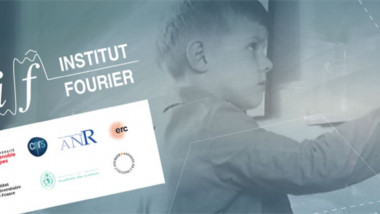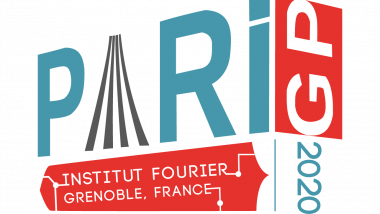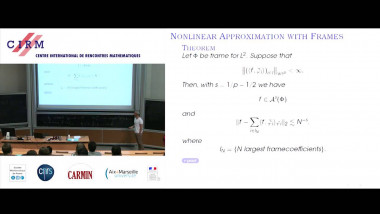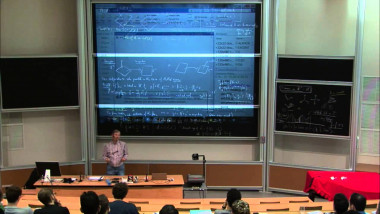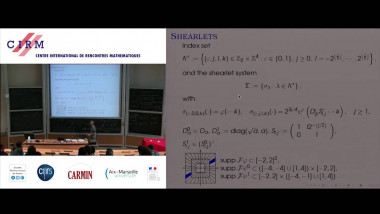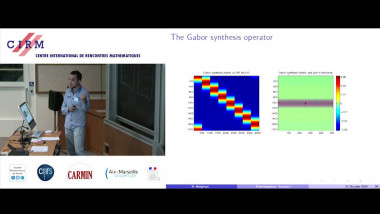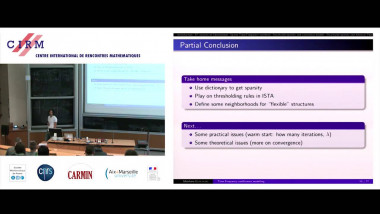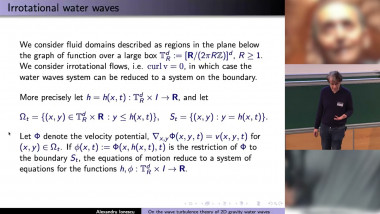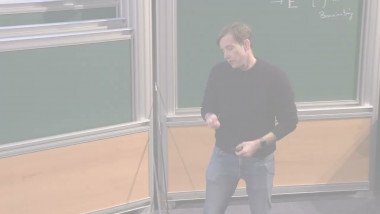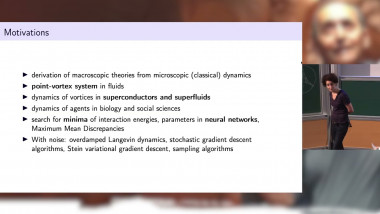Wavelets, shearlets and geometric frames - Part 2
In several applications in signal processing it has proven useful to decompose a given signal in a multiscale dictionary, for instance to achieve compression by coefficient thresholding or to solve inverse problems. The most popular family of such dictionaries are undoubtedly wavelets which have had a tremendous impact in applied mathematics since Daubechies' construction of orthonormal wavelet bases with compact support in the 1980s. While wavelets are now a well-established tool in numerical signal processing (for instance the JPEG2000 coding standard is based on a wavelet transform) it has been recognized in the past decades that they also possess several shortcomings, in particular with respect to the treatment of multidimensional data where anisotropic structures such as edges in images are typically present. This deficiency of wavelets has given birth to the research area of geometric multiscale analysis where frame constructions which are optimally adapted to anisotropic structures are sought. A milestone in this area has been the construction of curvelet and shearlet frames which are indeed capable of optimally resolving curved singularities in multidimensional data. In this course we will outline these developments, starting with a short introduction to wavelets and then moving on to more recent constructions of curvelets, shearlets and ridgelets. We will discuss their applicability to diverse problems in signal processing such as compression, denoising, morphological component analysis, or the solution of transport PDEs. Implementation aspects will also be covered. (Slides in attachment).


